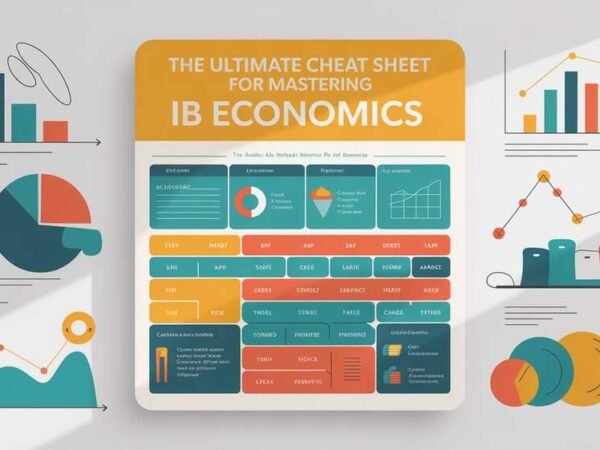The British Schooling System is renowned worldwide for its quality and structured approach to education. It encompasses several stages designed to give students a comprehensive understanding of various subjects while fostering personal development. Understanding the fundamentals of this system is crucial for both local and international families, especially those considering enrollment at prestigious institutions like the Thomas Keith Independent School and Lady Evelyn Independent School.
One of the defining features of the British Education System is its division into distinct segments: primary education, secondary education, and further education. Each stage serves a unique purpose in a student’s academic journey, preparing them for various aspects of life and potential future career paths. This structure ensures that children receive a well-rounded education that balances academic learning with real-world skills.
Primary education in the United Kingdom usually begins around age five and lasts until eleven. During these formative years, students are introduced to a diverse curriculum that includes subjects such as English, mathematics, science, and the arts. The British Schooling System strongly emphasizes developing every child’s literacy and numeracy skills, which are considered foundational to their future academic success.
Secondary education follows, generally from ages eleven to sixteen, culminating in the General Certificate of Secondary Education (GCSE) exams. These exams are critical indicators of students’ academic abilities and can influence their further education or employment options. The British Education System ensures that students receive a broad and varied educational experience, with opportunities to specialize in areas of interest as they progress through their schooling.
Further education often refers to the latter stages of the British Schooling System, which includes academic programs such as A-levels and vocational courses. This stage allows students to tailor their education to their chosen career paths or higher education goals. Institutions like the Thomas Keith Independent School offer a range of subjects designed to equip students with the knowledge and skills necessary for university admission or entering the workforce.
The British Education System is a comprehensive framework designed to develop young learners’ academic and personal skills. By understanding the structure and objectives of this system, parents and students alike can make informed decisions about their educational journeys. As a cornerstone of the academic landscape, the Thomas Keith Independent School exemplifies the principles and values of the British Schooling System.
Historical Background
The British school system has advanced! Education has developed from elite-only in medieval times to compulsory in the 19th century. The 1944 Education Act provided free secondary education, and recent revisions have promoted inclusion and modernization.
Structure of the British Schooling System
The British education system has three stages: primary, secondary, and tertiary. Each stage serves distinct age groups and educational purposes, establishing a comprehensive early childhood to maturity pathway.
Primary Education
Primary education caters to children aged 4 to 11. It is divided into two key stages:
- Key Stage 1 (KS1): Ages 4-7
- Key Stage 2 (KS2): Ages 7-11
These phases help kids learn English, maths, science, and more. The program encourages curiosity and lifelong learning.
Secondary Education
Secondary education is for students aged 11 to 16 and is divided into:
- Key Stage 3 (KS3): Ages 11-14
- Key Stage 4 (KS4): Ages 14-16
Students build on primary education in KS3. KS4 is vital for GCSE exam preparation and determines pupils’ educational and professional prospects.
Further Education
After completing secondary education, students can pursue further education in:
- Sixth forms attached to secondary schools
- Colleges
Students can pursue A levels online schools, or vocational certifications here, depending on their professional goals. A-levels are necessary for university admission, whereas vocational qualifications prepare pupils for trades.
Types of Schools in Britain
The British schooling system includes various types of schools:
- State schools
- Independent schools
- Special schools
State Schools
State schools educate youngsters for free with government funding. The majority of UK schools are subject to national educational standards and inspections.
Independent Schools
Private or independent schools charge tuition and offer scholarships to bright students. They also provide a more extensive curriculum and extracurricular options.
Special Schools
Special education schools serve SEN students. They customize educational programs and support services to help students succeed.
Curriculum and Examinations
The National Curriculum sets the educational standards for most state schools. Key exams include:
- GCSEs: Taken at the end of KS4
- A-levels: Taken in further education
Alternative qualifications, such as the International Baccalaureate (IB) and BTECs, offer different pathways for students.
Extracurricular Activities
Student development relies on extracurriculars. Sports, arts, clubs, and community service assist pupils to develop leadership, social skills, and personal interests.
Teacher Training and Qualifications
Becoming a teacher in the UK involves rigorous training. Aspiring teachers must complete:
- A Bachelor of Education (B.Ed) or equivalent degree
- Postgraduate Certificate in Education (PGCE) for graduates in other fields
Continuous professional development ensures teachers stay updated with educational best practices.
Challenges in the British Schooling System
The British schooling system faces several challenges:
- Funding issues: Budget cuts and resource limitations
- Inequality and access: Disparities between different regions and social groups
- Impact of COVID-19: Disruption in learning and mental health concerns
Conclusion
The British education system is complex yet well-structured to provide excellent education. Reforms and educator dedication advance the system despite its obstacles. Understanding the system helps us appreciate the efforts to raise the next generation.
FAQs About the British Schooling System
The British Schooling System can be intricate; many local and international families question its structure and offerings. This section addresses some of the most frequently asked questions about the British Schooling System, providing clarity for those navigating the educational landscape in the UK.
What Are the Critical Stages in the British Schooling System?
The British national curriculum or Schooling System is divided into several key stages. Key Stage 1 covers ages 5 to 7, Key Stage 2 covers ages 7 to 11, Key Stage 3 includes ages 11 to 14, and Key Stage 4 encompasses ages 14 to 16. After these, students may proceed to Key Stage 5, which provides Sixth Form or college education for ages 16 to 18.
What Is the Difference Between a Public School and a Private School?
In the British Schooling System, a public school is a private school that usually charges fees and has selective entry. Conversely, most private schools in the UK are independent and fee-paying, but they may not have the same historical and elite connotations as public schools.
Is Uniform Compulsory in British Schools?
Uniforms are a significant aspect of the British Schooling System, with most schools requiring students to adhere to a specific dress code. Uniforms promote equality and a sense of belonging among students, reducing distractions caused by varied dress styles.
How Do Grading Systems Work in British Schools?
The grading system in the British Schooling System is distinct, with students assessed through a combination of coursework and final exams. In Key Stage 4, students take the General Certificate of Secondary Education (GCSE) exams, graded from 9 to 1, with nine being the highest. For higher education entry, A-level grades range from A* to E.
What Curriculum Is Followed in British Schools?
The British Schooling System primarily follows the National Curriculum, which outlines mandatory subjects and standards for schools in England. Core subjects include English, Mathematics, and Science, while students also study foundation subjects such as History, Geography, and Art.
By understanding these elements of the British Schooling System, students and parents can better navigate the opportunities and requirements within UK education. Thomas Keith Independent School provides comprehensive education across all key stages, adhering to the standards set by the National Curriculum while maintaining flexibility to cater to individual learning needs.













